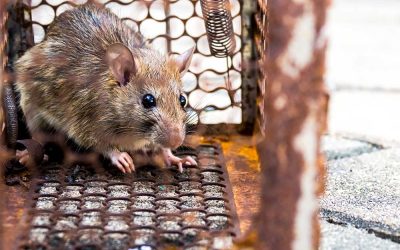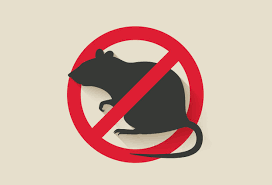There’s nothing more annoying than a mosquito bite! These pests can leave you itching for weeks and even spread harmful diseases.
Female mosquitoes regularly lay their eggs in standing water, meaning you can find mosquito larvae in pool areas, bird baths, or rainwater storage buckets.
To reduce the chances of itchy mosquito bites, check out our article for ways to get rid of mosquito larvae from the water around your home!
Why Do Mosquitoes Lay Eggs in Water?
Instead of creating intricate hives or colonies like other insects, mosquitoes prefer to lay their eggs in damp or watery areas. While bees, wasps, and ants make homes to shelter their young, mosquito larvae develop independently of their mothers.
Female mosquitoes typically lay their eggs in water or other damp areas that may eventually collect the correct amount of moisture. Without standing water, the mosquitoes couldn’t develop effectively.
Mosquitoes deposit their eggs in stagnant water, but they may crowd around areas that seem otherwise clean. Some species prefer water sources with specific bacterial growth to better enable egg development.
For example, mosquitoes carrying yellow fever prefer water full of bacteria that releases specific chemical signals. These chemicals encourage mosquitoes to land in the area and lay their eggs.
After hatching, the mosquito larvae feed on bacteria resting on the water’s surface until they reach the pupal stage and eventually mature into adults. If the egg’s environment isn’t optimal, the larvae will remain within their egg casings until there is sufficient water, temperature, and bacteria to stimulate growth.
Mosquito Larvae in Pool Hangouts
If you keep your swimming spot consistently clean, you probably won’t find mosquito larvae in pool areas. However, many regions across Texas aren’t warm throughout the year, and regular cleaning during the winter isn’t always a viable option.
Any area with stagnant water can be a hotspot for mosquitoes. Depending on the size of your infestation, you could have hundreds of eggs waiting to hatch within the standing water on your lawn!
Can I Use Chlorine to Dispel Mosquitoes?
Between chlorine treatments and filtration, an active pool isn’t likely to attract mosquitoes. However, chlorine isn’t guaranteed to kill the larvae, and some eggs can withstand low levels of chemicals.
You can use chlorine and pool filters to help deter adult mosquitoes from laying eggs in your swimming pool. Most mosquitoes will choose another area if pools are regularly used and moving.
Plus, treated pools can’t maintain the bacteria levels that mosquito eggs need to hatch and larvae require to develop.
Do Mosquito Larvae Thrive in Clean Pools?
Mosquito larvae in pool areas aren’t unheard of, especially if chlorine levels are low. If you haven’t cleaned your pool in a few weeks, you could notice a few creepy crawlers piling up. Pool tools that collect water may also become home to budding mosquitoes.
Smaller children’s pools will also attract mosquitoes. These pools hold less water than traditional pools, so many homeowners forgo strong cleaning chemicals. Mosquito larvae can easily collect in these pools if the water is undisturbed for days or weeks.
If leaves or other debris begin collecting, bacteria can accumulate and create a habitable environment for mosquito larvae in pools. No one wants to share a cool dip in the water with a handful of mosquitoes!
How Can I Remove Mosquito Larvae in Pools?
Removing standing, stagnant water is the easiest way to reduce the mosquito population on your property. If you find mosquitoes larvae in pool spaces, you can try one of the following options:
- Suck them up with a pool vacuum
- Shock the pool with high levels of chlorine
- Remove them with a net
- Use store-bought larvicide tablets
Remember to keep your pool clean to prevent mosquitoes from laying eggs. If your pool isn’t used for a long time, invest in a quality pool cover. Always remove standing water from smaller pools or utilize a cleaning agent for extended use.
Other Areas Mosquito Larvae Thrive
Pools aren’t the only place mosquito larvae may grow. Other areas with standing water may also house hundreds of mosquito eggs waiting to hatch! If you want to reduce the number of mosquito attractants, consider following these recommendations!
Bird Baths
Often considered a natural pest control method, birds help cull many insects that plague homeowners. Without a healthy number of birds in your backyard, the local insect population would grow out of control!
Whether you need an extra hand keeping pests at bay or want to invite them to your backyard, birdbaths are a way to attract birds to visit. Like most creatures, birds need a steady source of water to stay alive, but a clean water basin helps them remove debris from their feathers!
Unfortunately, standing water also attracts mosquitoes and provides another area for these pests to lay their eggs. Without routine cleaning, a bird bath could quickly become a stagnant mess.
Changing your bird bath’s water is the easiest way to keep mosquitoes away. You can also utilize a water movement system, fountain, or chemical larvicides to keep mosquitoes from infesting your birth bath.
Children’s Toys
Like kiddie pools, your child’s outdoor toys could encourage mosquitoes to flock to your backyard. We know kids are messy, and they can leave your yard looking like a wreck after a long day of outdoor play!
If your little one leaves toys overturned, water could collect in any deep cavities as it rains. Toy trucks, buckets, swing sets, slides, shovels, playhouses, and more could slowly accumulate enough water to house mosquito larvae.
As these pests mature, blood-sucking mosquitoes will infest your child’s play areas looking for their next meal. Female mosquitoes need blood to reproduce, so the newly matured mosquitoes will have ample opportunity to continue breeding.
To protect your child’s play area, regularly empty collected water after a rainy day. Also, encourage your children to take smaller toys inside to prevent an accidental mosquito breeding ground.
Rainwater Buckets
Many Texas residents collect rainwater to use for their flower or vegetable gardens. During dry seasons, this water can help protect growing vegetation and avoid a hefty water bill to keep plants afloat.
However, keeping rainwater does come with one caveat: mosquitoes. Unless properly filtered, standing water can eventually turn stagnant and encourage mosquitoes to lay their eggs inside.
To keep your rainwater clean and safe from mosquitoes, consider installing bug screens over your rainwater tanks or buckets. This netting should maintain the integrity of your collection device while still keeping pests at bay!
Check out this video to learn more about safe rainwater harvesting.
Gutters
Your house isn’t even safe from these maturing pests! Mosquitoes don’t always need overflowing water to lay their eggs. Larvae can often thrive in areas adjacent to water, like gutters.
Because gutters direct rainwater away from your roof, they can collect moisture, especially if they’re full of water-logged leaves. Leaves and other debris create hospitable environments for the larvae to thrive on budding bacteria.
Regularly cleaning your gutters is the best way to ensure mosquitoes won’t lay eggs on the edge of your home.
Having Trouble with Mosquito Larvae? Contact Us!
Mosquitoes are major problems for Texas residents. That’s why NTX Best Pest offers quality pest control solutions for all of your mosquito issues!
Besides our mosquito fogging pest control services, we also offer In2Care mosquito trapping. With our specialized treatment, mosquitoes visiting our baited traps are coated with a fast-acting pesticide that will kill adult mosquitoes in just a few days.
Plus, the female mosquitoes will spread the pesticide to every water spot they frequent, killing the remaining larvae as they begin to mature into their pupae form.
We target mosquitoes in every cycle of their life! To keep mosquitoes at bay, give us a call!



0 Comments